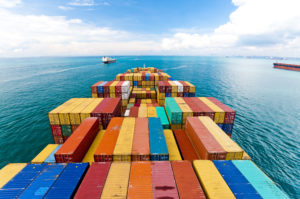Trade Recovery Requires Firm-specific Initiatives, Trade Policies and Global Collaboration

The COVID-19 pandemic has hit the global value chains (GVCs) substantially as it struck at their core regions, including China, Europe and the United States (Seric et al., 2020). According to a recent estimate of the World Trade Organisation (WTO) the merchandise trade volume worldwide would fall by between 13% to 32% in 2020. It is highly likely that the COVID-19 determined decline in world trade will be more substantial than the historical trade fall brought by the global financial crisis more than ten years ago.
Although the impacts of the COVID-19 on trade and on GVCs are substantial and further economic and societal implications for the global production networks can be expected in the long run, WTO expects a possible recovery in trade in 2021. This, however, depends on how long the COVID-19 pandemic would last and how effective the trade and economic policies implemented worldwide would be.
Against this background, KCG Researchers, Dr. Birgit Meyer and Saskia Mösle, in cooperation with Michael Windisch from the United Nations of Industrial Development Organisation recently published an opinion article arguing that lessons from the past disruptions to GVCs can be learned to help support the trade recovery from the pandemic. The authors strongly emphasise the essential relevance of firm-specific initiatives and trade policies. Firms can be more capable of absorbing the economic shocks “with a higher degree of diversification, financial capabilities and flexibility across activities”. A better inventory management, alternative transportation methods and transport routes and parallel business sites can, for example, help reduce the risks of supply chain disruptions facing firms. They also indicate that “Policies that reduce time and uncertainties along GVCs are essential for rapid recovery.” Last but not least, they underline that the policy effectiveness is expected to be much greater if economies worldwide can take a multilateral approach to policy making and proceed with intergovernmental cooperation in this regard.
The article “Meyer, B., Mösle S., and Windisch, M. (2020), Lessons from Past Disruptions to Global Value Chains”, Industrial Analytics Platform, United Nations Industrial Development Organization” is available here.



 KCG Projects
KCG Projects


